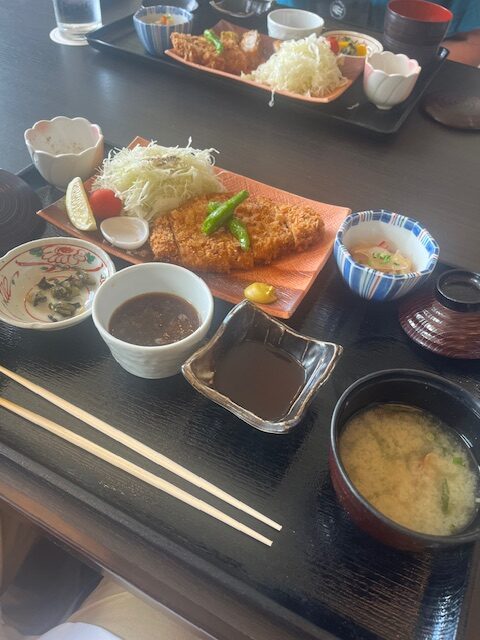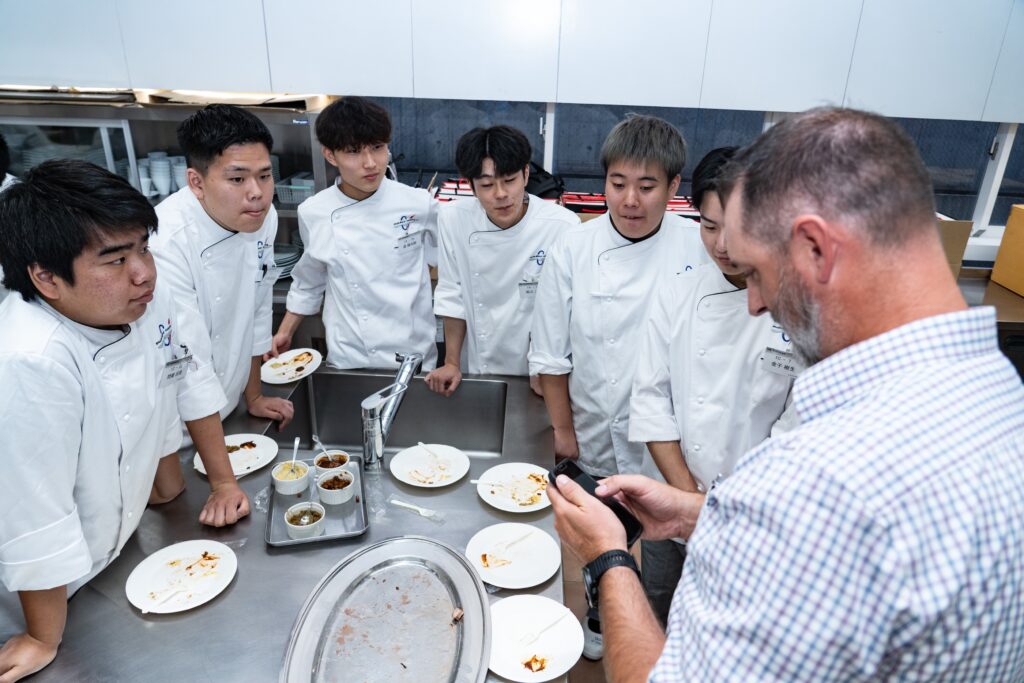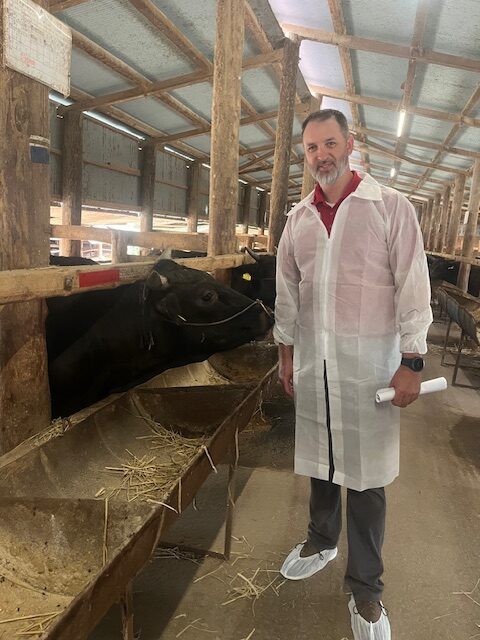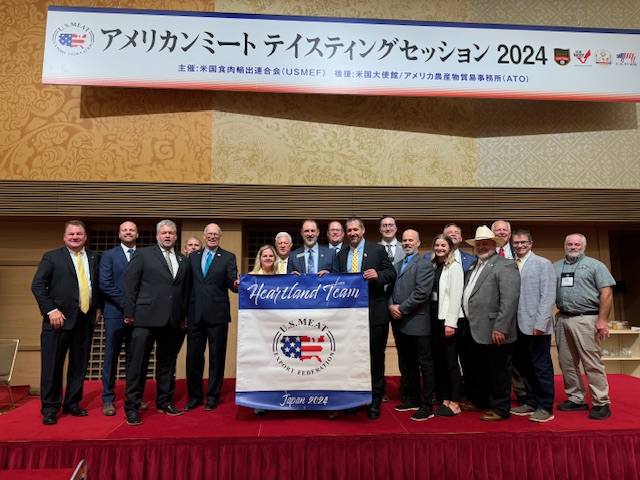Mike Bergen was part of the USMEF (United States Meat Export Federation) Heartland Team pictured here on a recent trip to Japan, where they explored market opportunities for U.S. meat.
Mike Bergen, who farms southwest of Henderson in Hamilton County, recently had the opportunity to travel to Japan with the USMEF-Heartland Team (United States Meat Export Federation), visiting Tokyo and Sendai. He is currently the president of the Hamilton County Corn Growers and also sits on the Nebraska Corn Growers Association Board of Directors.
On his trip, Bergen learned firsthand that “trade just doesn’t happen, but it needs to have relationships” that can be developed significantly since U.S. agriculture outproduces what it exports.
He represented Nebraska Corn on this trip, which included 20 others from other USMEF partner organizations across the United States. Their purpose was to foster relationships with the Japanese and study their markets to develop more trade.
Despite the 14-hour time difference, his group hit the ground running on their first full day in Tokyo in September, meeting with the U.S. Embassy and representatives from the USDA. Bergen discussed current trade conditions and the economic conditions of both countries.
“I learned some interesting facts from this meeting. The average age of Japanese farmers is 69 years old, and the average farm size is four acres. They have lost over 60% of their farmers since 2000 without another generation to take over,” said Bergen. “The opportunity for trade with Japan is unlimited since they have a significantly declining agricultural population.”
Their next day was filled with meetings with retailers, restaurants, and suppliers. “We started our day with a visit to Katsuya, a Tonkatsu (fried pork loin) restaurant featuring 100% US pork. This was my favorite meal even though it was 9 a.m.,” said Bergen.

He visited the Musashino Culinary School and watched a cooking demonstration by one of the top Tokyo Chefs. He explained the importance of using U.S. pork and beef to another 100 aspiring chefs. “This was a unique strategy of USMEF to convince the next generation of chefs to use US pork and beef exclusively,” said Bergen.

Bergen learned that the Japanese are relationship-oriented buyers. “The Japanese are one of our biggest international trade partners, so trips like these are important to foster our relationship with them. They aren’t price shoppers, but they are looking for superior products that taste good, are safe, and have a reliable supply chain,” said Bergen.
Next, they headed to Sendai via the bullet train, visiting Hanew Foods, a beef tongue processing facility. “Interestingly, they were processing beef tongue from Cargill in Schuyler, Nebraska, that day! We had beef tongue for lunch, but it was not my favorite.” After trying it, Bergen opted for a Japanese McDonald’s Big Mac after lunch!
They visited a Wagyu Beef Farm with five farm yards and 900 head, where they were raised under a roof while classical music was played. On their bus ride out of Sendai, they saw the rice harvest in progress.
The next day, they toured the Tokyo Meat Market in Shibaura, where 700 head are brought in daily to be slaughtered, auctioned, and processed. “This facility was amazing, and it was right in the middle of Tokyo with absolutely zero smell inside or outside the plant,” said Bergen. He witnessed a very fast bidding process of less than 30 seconds with an average price of around $8,500 with a market top of $11,500 for mostly Wagyu beef.

Bergen’s trip highlight was attending the USMEF’s trade seminar and reception, which 400 Japanese customers and partners attended. He heard updates from US Embassy Minister Counselor Jeanne Bailey, USMEF staff, and four producers from the Heartland Team on the beef, pork, corn, and soybean U.S. sectors.
“Mike Ver Steeg from Iowa Corn gave the corn briefing and did a remarkable job. We interacted with many attendees at the reception and had some great conversations. With the help of Google Translate, I could communicate and share pictures of my operation with the Japanese,” said Bergen.
During his visit, Bergen was very impressed with Tokyo’s beauty, safety, and cleanliness. “Everyone I met was so nice and appreciative of our visit.” He hopes he can reciprocate by having the Japanese come to the U.S. to visit his farming operation someday.
He is very thankful to Nebraska Corn for the opportunity to visit Japan and learn so much about the importance of fostering good international trade relations.
Arigatou! (Thank you in Japanese)


































